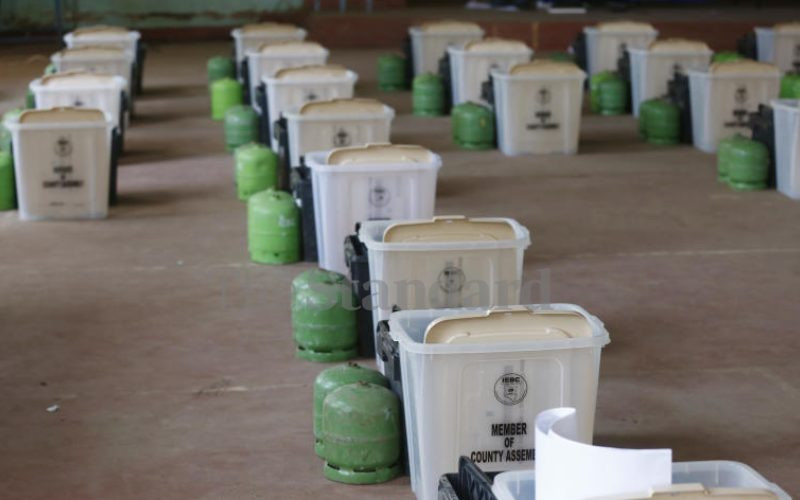
The August 9 elections present us with yet another succession period.
As the campaign season comes to an end, we are left with the echoes of the voices of retiring leaders fronting and seconding their favourite candidates, beseeching us to vote them in. And while it is safe to say that most voters have made their minds, we still have to wonder what the incumbent leaders see in their potential successors.
Some of these leaders are the same ones who, in a span of five or 10 years, seen the country plunge deeper into misery and done little to salvage the situation. They sat on the front row seats, watching and participating in the plundering of a nation that once boasted of accelerating economic growth.
The histories of Herodotus tell of Sisamnes, a man whose name should be a ringer in every corruption and succession cases. In his own right, Sisamnes was a royal judge during the reign of Cambyses II of Persia. He was a highly respected and reliable judge until his dirty linen got aired in the open. As was to be discovered during his practice as a judge, Sisamnes defied his oath, receiving a bribe to influence and pass an unfair verdict.
On hearing this, the ruler Cambyses, sentenced him to death through flaying, one of the most distressing ways of dying. Before his execution, Cambyses II asked Sisamnes to name his successor. Since corruption and greed was deeply embedded in him, he quickly and without much consideration nominated his son, Otanes.
After his flaying, Cambyses II had Sisamnes' skin used as a perdurable drape on the royal judge's chair. The chair became Otanes' seat as he took over his father. He had a physical, most scary reminder and warning of the consequences of corruption and greed.
Fellow historians accused Herodotus of making up stories and coining imaginative scenes to come up with entertaining accounts of things that never happened. Herodotus vehemently refuted these claims, saying he only wrote and passed on what he saw and heard. While it is possible to join fellow historians in the argument that the flaying of Sisamnes was an imaginative piece of entertainment, a critical analysis of this tale sets us on a pedestal especially with the succession in the aftermath of the August 9 elections.
That every imaginative tale and creation of the mind is a reflection of the goings on or possible future happenings. Herodotus, who has also been called the father of lies because of his vivid imagination, gets vindication every time power has to be transferred from one regime to another. The aspirants, the Otanes of our time, get to face the brutal seat that has corruption, plunder and mismanagement of public funds draped all over it.
While Kenya has not done a great job at prosecuting corrupt leaders, the sting of their actions remains biting, as their stench hold heavy in the air. The Otanes get to take over office with mountains of their predecessors' filth that they are expected to clean. Just like Otanes, they have a duty of upholding integrity and fostering good governance.
While, ideally, the flaying of Sisamnes is a fate and punishment that should befall the leaders whose actions are synonymous with Sisamnes', the Kenyan political scene has seen a lot of leaders get away with their misdeeds. This trend has caused apathy among voters, with most people not holding their leaders accountable, and resigning to fate.
The horrid governance has become an acceptable, and preaching a better society with better leadership is met with sneers and jeers. We no longer consider the manifestos, performance track records or the integrity of the leaders we trust with our resources and lives.
 The Standard Group Plc is a multi-media organization with investments in media
platforms spanning newspaper print
operations, television, radio broadcasting, digital and online services. The
Standard Group is recognized as a
leading multi-media house in Kenya with a key influence in matters of national and
international interest.
The Standard Group Plc is a multi-media organization with investments in media
platforms spanning newspaper print
operations, television, radio broadcasting, digital and online services. The
Standard Group is recognized as a
leading multi-media house in Kenya with a key influence in matters of national and
international interest.
